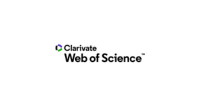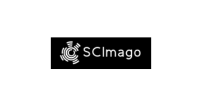BACTERIA AND INFLAMMATORY RESPONSE IN THE UTERUS OF BITCHES AFTER ARTIFICIAL INSEMINATION
DOI:
https://doi.org/10.5380/avs.v15i2.13263Palavras-chave:
bitch, inflammation, reproduction, semen, cadela, inflamação, reprodução, sêmenResumo
The present study aimed to obtain information about the uterine inflammatory response (number of polymorphonuclear neutrophilic granulocytes - PMNs) in bitches after artificial insemination (AI) and identify the uterine microflora present after the following treatments: insemination using semen with extender (n=6), insemination with fresh semen (n=6) and no inseminated (n=6). The percentage of PMNs on the endometrial surface and within histological sections was evaluated together with the presence of aerobic bacteria in the uterine lumen. For endometrial cytology, there was no significative difference on the number of inflammatory cells between bitches not inseminated (3.05 ± 1.74 PMNs) and those inseminated with fresh semen (3.55 ± 1.51 PMNs); There was a significative difference in both groups compared to the inseminated with semen plus extender (7.80 ± 1.67 PMNs) (p<0.05). Histology showed that there was no significative difference on the number of inflammatory cells between bitches not inseminated (87.72 ± 35.2 PMNs) and those inseminated with fresh semen (122.97 ± 43.31 PMNs); however, it was observed differences in both groups compared to those inseminated with semen plus extender (171.94 ± 42.74 PMNs) (p<0.05). Eight animals, randomly distributed in the groups, showed the presence of Staphylococcus sp and Proteus sp., in the microbiological exam. The extender for semen, with Tris, is a potent inducer of uterine inflammation, and positive uterine cultures may be obtained during estrus without inflammation or uterine infection.
Downloads
Publicado
Como Citar
Edição
Seção
Licença
Autores que publicam nesta revista concordam com os seguintes termos:
- Autores mantém os direitos autorais e concedem à revista o direito de primeira publicação, com o trabalho simultaneamente licenciado sob a Creative Commons - Atribuição 4.0 Internacional que permite o compartilhamento do trabalho com reconhecimento da autoria e publicação inicial nesta revista.
- Autores têm autorização para assumir contratos adicionais separadamente, para distribuição não-exclusiva da versão do trabalho publicada nesta revista (ex.: publicar em repositório institucional ou como capítulo de livro), com reconhecimento de autoria e publicação inicial nesta revista.
- Autores têm permissão e são estimulados a publicar e distribuir seu trabalho online (ex.: em repositórios institucionais ou na sua página pessoal) a qualquer ponto antes ou durante o processo editorial, já que isso pode gerar alterações produtivas, bem como aumentar o impacto e a citação do trabalho publicado.













